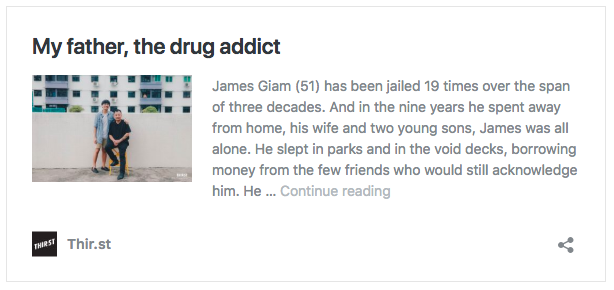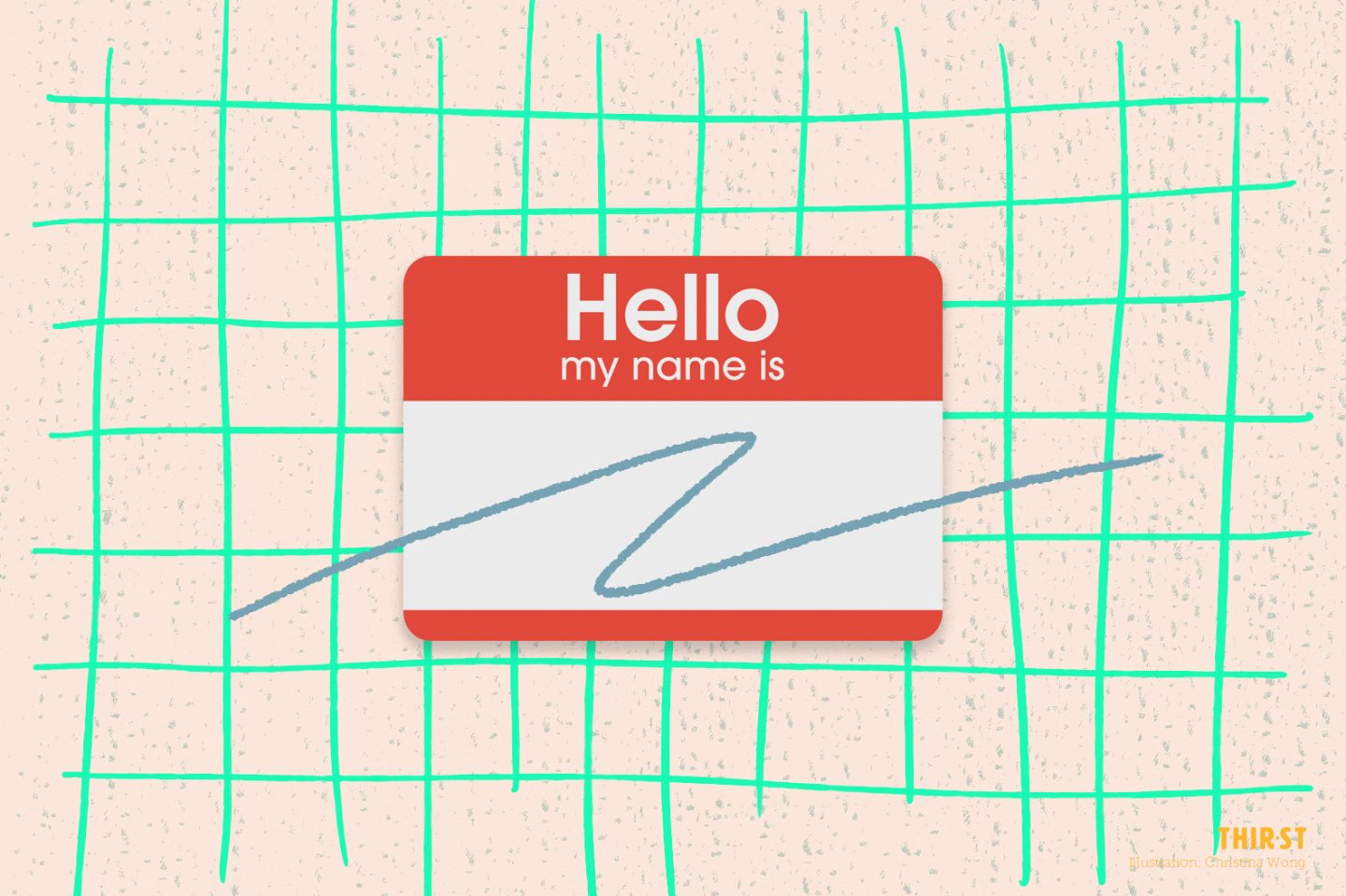I hit rock-bottom when I was 17.
That was when I stood in front of my father’s niche, silently ranting at him for not being around to protect me and my mother in the legal mess his extended family had gotten us into. I didn’t even know the man: He passed away when I was only 18 months old, but I knew right at that moment, in that dreadful season of my life which I felt no agency over, I hated him.
I hated the fact that he was absent. I hated the life I had to lead for the last 17 years because of his absence. I hated the blood that ran through my veins. Most of all, I hated the reality of living the rest of my life as a fatherless child with no family support whatsoever.
In that moment, a rash thought popped into my head as I stood in front of the niche. Why don’t I change my surname?
I thought that if I could just drop this one syllable that was causing me so much pain and tears, life would be easier.

Ultimately, I didn’t follow through on the rash impulse to change my surname. Instead, when I cried out to my earthly father that day – it was my Heavenly Father who responded.
We are all probably familiar with the 5 stages of grief: denial, anger, bargaining, depression and acceptance. 17-year-old me had mistakenly thought that I had meandered my way through all the stages and was finally at the stage of numb acceptance.
But as I stood in front of my father’s niche, the Lord opened my eyes to see that I had simply been floundering within the pool of denial and anger. Wanting to change my surname only reflected my desire to escape. I was still grieving immensely for my father, and I was on the verge of dishonouring him in my grief.
Thus began a long and painful season of understanding and accepting God’s claim of daughtership over me (2 Corinthians 6: 18). It was a season of vulnerability, one that left me no choice but to confront the open and deep wounds of my past.
Most importantly, it was time to let my Father heal them.

That season was painful but necessary, and I emerged from it convicted that the Lord is my Father and Provider.
Yet that didn’t mean I was no longer grieving. In fact, the grieving intensified because I was now struggling to reconcile the truth and reality of my life. The truth was that I could always turn to my Heavenly Father for the fatherly love I desired, the reality was that the circumstances of my life still reflected the consequences of fatherlessness.
While I no longer had the desire to change my surname, I still faced a lot of family issues. The lies and schemes my extended family surrounded me with could rival that of a Hong Kong drama – but I still needed to waddle through all of it justly, lovingly, mercifully and humbly (Micah 6:8).
The light at the end of the proverbial tunnel still seemed as far away.
Things with my extended family were eventually settled about a year ago.
I’m not proud of how I reacted towards them in many situations, but I’m certain that the Lord had enabled me to do my best. I know He was at work making my paths straight (Proverbs 3:5-6).
The Lord also guided me through all 5 stages of grief in the last few years gently. And lately, I have been sensing Him impressing a new stage upon my heart – reconciliation. I also feel these words upon my heart: “Jen, this chapter of your life has not ended.”
That leaves me quaking in my shoes for a lot of reasons, the largest one being that I am unwilling. After all, why would I willingly turn back towards the people who hurt me so deeply – when my scars still feel so raw?
But every time I think like this, the image of His nail-pierced hands enter my mind immediately – Jesus died for us to be reconciled to God even while we hated Him.
So while I don’t yet understand why I was chosen to bear this surname, because I know God’s Name, I can trust Him in all that He’s leading me to.
He will never forsake those who seek Him (Psalm 9:10).
The author’s name has been changed for confidentiality.










